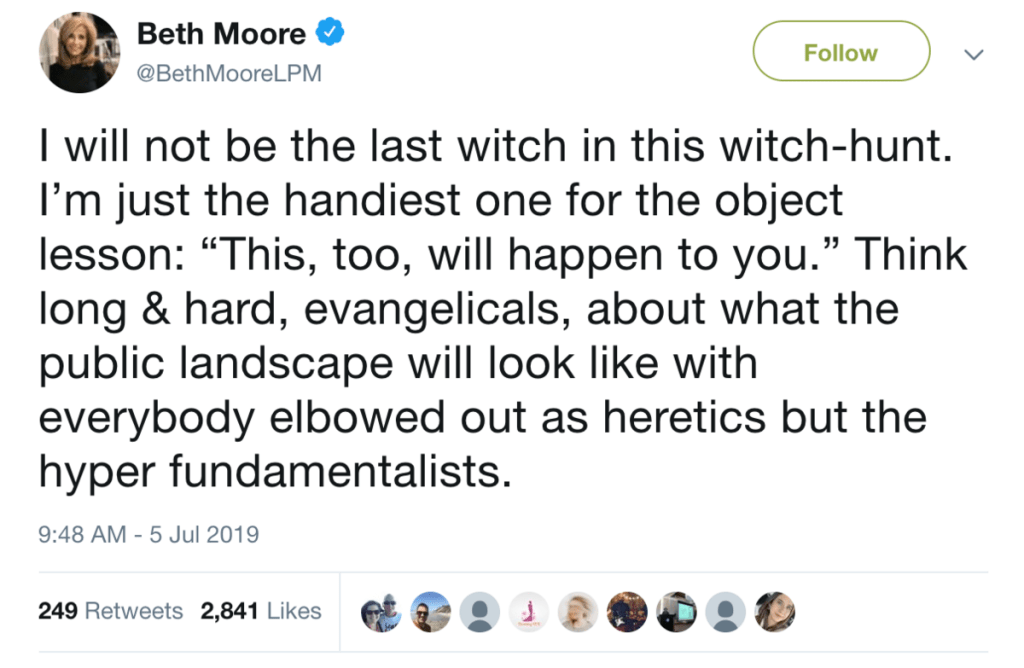
In a continued social media meltdown, similar to the one that had the unstable and hysterical feminist take a break from Twitter back in May, Beth Moore labeled Christians explicitly opposed to homosexuality “hyper-fundamentalists.”
Moore was referencing her Christian critics who have repeatedly asked her to clarify her position on homosexuality, noticing her leftward drift. While Moore sidestepped the issue and refused to say whether or not she viewed homosexuality as a sin, her fans claimed that Moore had been sufficiently clear in past writings, and therefore didn’t need to repeat herself. However, it was revealed over the Independence Day holiday that Moore has deleted anti-homosexuality passages from newer Kindle versions of at least one of her older books, thus covering up any evidence that she opposed homosexuality.
Moore has since taken to playing the victim, claiming that the “attacks” (read that: requests for a clarification on her position) have “almost made [her] cry.” Her friends in the Southern Baptist Convention have been out in full force attacking her critics today, with one ERLC board member claiming that “discernment blogs are a big threat to the SBC.”
In response to those dismayed that she has expunged remarks critical of homosexuality from her books, Moore said the following on Twitter:

Of course, the thing about a witch hunt is that sometimes you actually find a witch.
Moore, who has done nothing but defend and promote her friend, Jen Hatmaker, after she came out for “gay marriage,” (in fact, Beth Moore supported Hatmaker when she was baptized into the liberal Episcopalian church by a gay bishop), is upset that some evangelicals consider her compromise on homosexuality to be kind of a big deal.
According to Beth Moore, if you think that backpeddling on homosexuality is wrong, you are a “hyper-fundamentalist.”
Thabiti Anyabwile, who is a black nationalist preacher whose real name is Ron Burns and who first endorsed Bernie Sanders and then Hillary Clinton for president in 2016, agreed with her assessment.

While some of us aren’t afraid of the term “fundamentalism,” for many evangelicals the term has a negative connotation. Essentially, Moore is insulting those of us who have a Biblical sexual ethic and is implying that we are all stuffy, KJV-only, kill-joys and party-poopers.
In the meantime, if all it takes to be a “hyper-fundamentalist” is to believe homosexuality is a sin, I guess there’s a lot of us.










